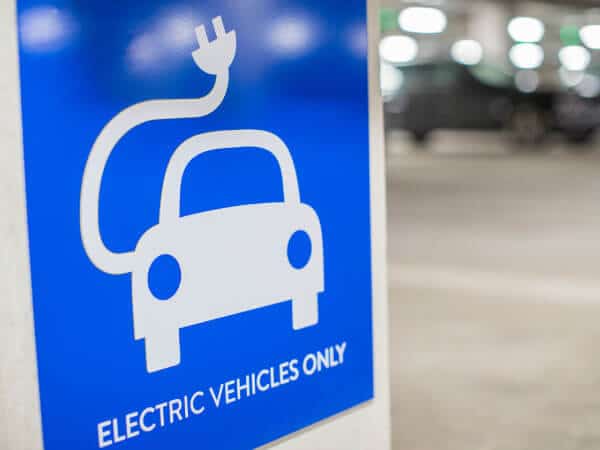Accelerating the deployment of light-duty, medium-duty, and heavy-duty zero-emissions vehicles (ZEVs) and installation of electric vehicle (EV) charging infrastructure is one of the Leadership Group’s top priorities to help curb the 39 percent in Greenhouse Gas (GHG) emissions generated by California’s transportation sector – the leading contributor to GHGs.
80 percent of California’s transportation carbon emissions come from passenger vehicles alone.
California has set a goal of 5 million ZEVs on California roads by 2030 and 250,000 zero-emission vehicle chargers, including 10,000 direct current fast chargers by 2025.
New buildings must contain dramatically higher levels of EV infrastructure in order to meet California’s transportation electrification goals.
On January 15, the California Building Standards Commission approved the California Air Resources Board (CARB) and Housing and Community Development’s proposal to require 10 percent of parking spaces to have infrastructure for EV charging for new multifamily dwellings.
In the Bay Area alone, 14 local governments have voluntarily exceeded the existing three percent mandatory minimum for EV-ready parking spaces for new housing construction, including Cupertino, Sunnyvale, Fremont, San Mateo, Menlo Park, Berkeley, Palo Alto and San Francisco, Santa Cruz, Santa Rosa and Contra Costa County.
As California’s EV sales — currently the highest EV market share in the nation — continue to grow, multifamily (MF) residents should be able to enjoy the benefits of EVs as much as single family residents.
California’s new MF and commercial building stock should make it easier, not harder, for drivers to make the switch to EVs.
MF dwellings make up approximately 50 percent of residential housing built in California, and have a 50-year lifespan on average.
The Energy Commission projects that 120,000 EVs will reside in multifamily housing by 2025. CARB’s 2018 gap analysis found that 66,000 to 79,500 Level 2 charging stations will be needed to meet the demand for charging stations in multifamily housing by 2025.
According to CARB’s latest cost analysis, pre-wiring parking spaces for EV charging infrastructure could result in $264 to $374 million in avoided retrofit costs between 2020-2025.
We applaud the Commission’s efforts and January 15 vote to increase EV-ready parking standards and align them with California’s ZEV goals, GHG and air pollution standards and local codes.
This new requirement is supported by the Leadership Group, environmental organizations, clean energy companies, EV charging networks, and affordable housing advocates that strongly support EV adoption and improved building codes.
– Heidi Sickler, Director of Energy & Environmental at the Silicon Valley Leadership Group | February 21, 2019




